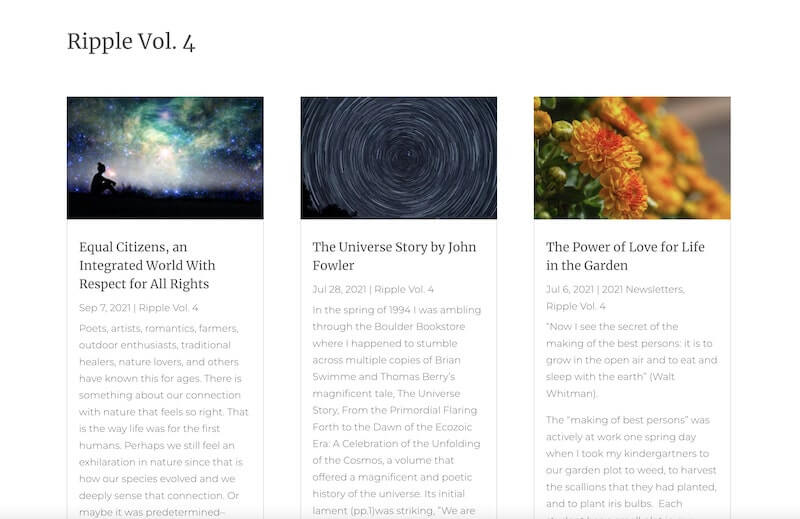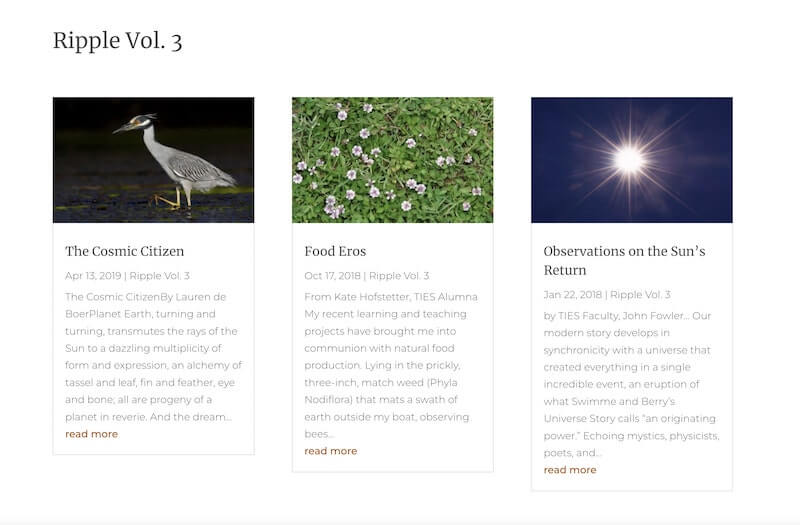Spirit is often thought of as the “breath of life” or one’s inner self. Our spiritual life is how we interact with people and environments. Perhaps, spirit can be considered our motivation for connecting to the world around us, to nature, to others, and to ourselves.
Our spirit is the lens through which we process and internalize the world around us. When we connect at a spiritual level through wonder, curiosity, and imagination, our personal narrative is woven into the narrative of others and the environments we interact with. When we seek to educate ourselves about these relationships, our spirit is activated, and we discover a deep sense of belonging.
While spirit is our individual identity, spirituality is the expression of our identity in relationship with things outside ourselves. Spirituality materializes as an outward representation or expression of the inward, relational connections that we have experienced. Spirituality is, in essence, a response to relationship.
Teachers can express their spirituality through their relationships with students and educational environments. Perhaps spiritual preparation inspires teachers to learn new ways to respond actively and creatively to their students’ needs. Montessori calls this responsive expression a “spiritual ascent” leading to “a new kind of love” (The Absorbent Mind, p. 277 & 282). I wonder if this new love can be considered the spirit, the very breath, that guides teachers toward thoughtful and intentional responses within the relationships they experience with themselves, their students, and the world around them.



